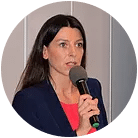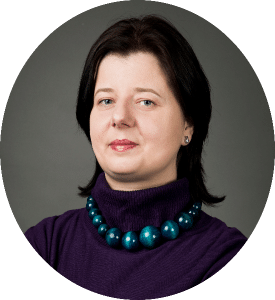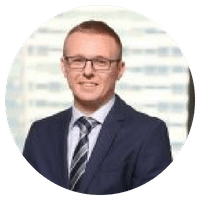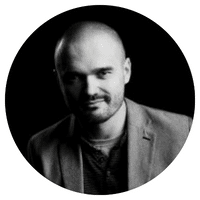
Katarzyna Maniszewska
Summer School Director
Dr. Maniszewska is an expert in security issues, journalist and philologist. Her research focuses on the history and development of political extremism and terrorism with particular emphasis on media coverage of terrorism. She is a member of the Scientific Board of the Terrorism Research Centre and lecturer at Civitas University University, Warsaw, Poland. Her academic publications include two books on the history of terrorism as well as numerous papers devoted – among other issues – to the role of the media (incl. Internet and social media) in the strategies of terrorist organizations. In her papers she points out the significance of media-literacy and public education in enhancing the traditional counterterrorism measures. Dr. Maniszewska is the Vice-Rector for International Relations at Civitas University.

Paulina Piasecka
Dr. Paulina Piasecka is an expert in the area of international terrorism and cybersecurity. She is a former senior expert in the Counter-terrorism unit of the Ministry of Interior and Administration of the Republic of Poland, and head of the unit for Non-Military Security (Department of Legal and Non-Military Affairs) at National Security Bureau, Poland. Dr. Piasecka was a participant of the US State Department “International Visitor Leadership Program” in the area of cybersecurity. She is Deputy Director of the Terrorism Studies Centre at Civitas University, Deputy Head of Information Analysis Institute at Civitas University, and a lecturer at Civitas University. She is a co-author and editor of publications on cybersecurity, information analysis, and international terrorism and counterterrorism.

Monika Nowicka
Dr Nowicka is a sociologist and an expert in integration of immigrants issues. She conducted research on integration of Polish immigrants in Iceland, integration of UE and third country nationals in Poland. Her other fields of research interest are urban studies, history of the city and citizenship. She is an author of papers on immigrant and city issues and co-author of reports on hate speech and civic competences. Dr Nowicka is the Deputy Head of the Department of Sociology at Civitas University.

Vanessa Tinker
Vanessa Tinker is an expert in the areas of international conflict analysis, peace education, peacebuilding, small scale mediation, gender mainstreaming, and conflict transformation in conflict-sensitive and/or post-conflict contexts. She has over ten years of international experience as a researcher, teacher, trainer, coordinator and manager of peace and conflict studies-based programs in Asia Minor, the Western Balkans, Eastern and Central Europe. She holds a Ph.D. in International Conflict Analysis from the University of Kent, UK. She has authored papers and book chapters relating to peacebuilding processes and peace-related education programs in the context of post-conflict settings. Dr. Tinker is a lecturer for the Department of International Relations.

Alexandra Richie, DPhil (Oxon.)
Faculty-led groups with WWII history focus
Dr. Richie is an historian specializing in Germany as well as Central and Eastern Europe. She wrote her doctoral thesis at the University of Oxford on The Political Manipulation of History in East and West Germany. After graduating, she worked for the Boston Consulting Group (London) restructuring industries across Central and Eastern Europe before returning to Oxford as a Fellow of Wolfson College where she taught History and Political Philosophy. She is the author of Faust’s Metropolis: A History of Berlin which was named one of top ten books of the year by American Publisher’s Weekly, and Warsaw 1944 which won the Newsweek Teresa Torańska Prize for best non-fiction book of 2014 and was long-listed for the Charles Taylor Non-Fiction Award. She has contributed to many articles, documentaries, radio and television programmers. She is a Presidential Counsellor at the National World War II Museum, New Orleans, U.S.A. Dr. Richie is a Co-Founder of the Summer School.

Maciej Kozlowski
Faculty-led groups with focus on Jewish heritage
Dr. Kozlowski is a native of Poland and has been a writer, editor, journalist, diplomat, political émigré, and prisoner of conscience. He is the author of numerous articles and books including Landscapes Before the Battle,” a group of historical essays awarded by the Solidarity Prize and The Forgotten War, a history of the Polish-Ukrainian War, and many others. Since 1990 in the Polish Diplomatic service. Between 1990-1994 served as DCM, then Charge d’affairs of the Polish Embassy in Washington. Between 1999-2003 ambassador of Poland in Israel. 2003-2013 Director of Department and ambassador at large for the Polish-Jewish relations in the Polish Ministry of Foreign Affairs. Professor at the Civitas University in Warsaw. Lecturer in many Polish and foreign universities.
Guest Speakers

Krzysztof Kasianiuk
Dr. Kasianiuk is an expert in Polish political system, leadership, and transformation studies. He analyzes political processes from systems perspective. He published in noumerous journals and authored a book on Polish modern parliamentarism: “Gra polityczna w parlamencie. Anatomia zjawiska” (Political game in parliament. Phenomenon’s anatomy”). He is a member of Civitas University faculty and teaches methodological courses. He is a member of Institute of Public Policy at Civitas University, where he works on the evolution of Polish governance institutions. He cooperates with many Polish based and international research teams and organizations.

Dr. Agnieszka Nitza
Dr. Agnieszka Nitza-Makowska is a political scientist and international relations expert. She holds the positions of Assistant Professor and Asian Studies Supervisor at Civitas University, Warsaw, Poland and Research Fellow at the Asia Centre, University of Tartu, Estonia. She is recognized for her impactful teaching, having shared her expertise at Humboldt University in Berlin during the 2018/19 academic year. Dr. Nitza-Makowska’s research focuses on the complexities of international relations, particularly in India, Pakistan, and China. Her work delves into critical areas such as soft power, sustainable connectivity, and environmental diplomacy. Dr. Nitza-Makowska’s contributions extend to scientific journals, including the International Journal of Cultural Policy (Routledge) and the Journal of Peacebuilding and Development (SAGE). She is a Polish National Science Centre’s SONATA-16 grant holder. In her multifaceted role as a researcher, educator, and expert commentator, Dr. Nitza-Makowska contributes to the narratives on Asian studies and international relations in Europe and beyond.

Dr. Marcin Terlikowski
Dr. Marcin Terlikowski is deputy head of the Research Office in the Polish Institute of International Affairs (PISM), where he had been a defense analyst from 2007 and Head of International Security program between 2014 and 2022. He graduated from Warsaw University (M.A. in strategic studies) and received Ph.D. degree from Warsaw School of Economics (SGH) in the area of economics. In his research he focuses on international security with particular focus on defense in Europe and transatlantic relations as well as on economic underpinnings of defense. He follows development of military capabilities both in the European Union and in NATO and defense industrial policies in Europe, European defense and military cooperation in bi- and mini-lateral formats; transatlantic defense and industrial relations and the defense-industrial policy of European Union. He is the author of numerous academic papers and policy reports on European defense and defense economics, Polish security policy and crisis management operations. He was a co-leader of collaborative research programs, funded from EU’s FP7 and Horizon 2020 as well as Norway Grants/EEA Grants. He has diverse teaching experience with international students and focused on novel areas of security, including cybersecurity, energy security, climate change and environmental security.

Roland Zarzycki
Roland Zarzycki holds a PhD in mathematics and in humanities. He is a researcher, academic teacher, speaker at international conferences, research and social projects manager/coordinator. Since 2013 he is a member of the Academy of Young Scholars and Artists in Wrocław and since 2015 a member of the Polish National Council for the Development of Social Economy at the Ministry of Family, Labour and Social Affairs. He collaborates internationally on political issues related to sustainable & participative cultural policies (LOCOP network), bilateral investment treaties (Institute of Global Responsibility) and public debt (Comité pour l’abolition des dettes illégitimes). In 2010-2011 Dr. Zarzycki co-authored Wrocław’s successful bid for the title of European Capital of Culture 2016, a project abandoned by the municipality of Wroclaw and contributed to the successful bid of Timișoara for the title of European Capital of Culture 2021. He co-founded PANATO co-op, 2B Fair foundation, Słodowa Island 7 initiative and other grass-root social initiatives. He co-authored and coordinated numerous social, cultural, and educational projects, is interested in social and political economy, critical political thinking and the role of fantasy and ideology in everyday life. He is a publicist, activist, and vegetarian. Dr. Zarzycki is the Vice-Rector for Academic Affairs at Civitas University.